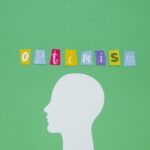With customers no longer seeking to own assets, they are demanding ever-greater flexibility in the way they pay for usage. That places the onus on manufacturers of products to think about the life cycle and maintenance of their products beyond the point of sale, and leasing models play a central role in helping companies boost productivity and sustainability. Embracing the sharing economy can lead to increased productivity and ‘collaborative consumption’ is a growing facet of transferring these principles into industry and business. If these concepts become part of the lifeblood of heavy industry, strategic changes will have to occur at a corporate level to ensure this approach drives productivity. The sharing economy has transformed industries such as transportation and leisure, disrupting traditional channels as consumers trade with each other to rent assets as they need them. But it has developed beyond simple peer-to-peer sharing of underused assets into the subscription economy – a business-to-consumer offering that is transforming the notion of ownership. Nowadays, people are prepared to pay for products as they use them, rather than bearing the cost of ownership. This phenomenon is forcing a fundamental change in the way manufacturers interact with their customers. They are no longer selling a product, but building long-term relationships that often span the life cycle of that product and are based on usage rather than ownership.
-
Vehicle dealers are selling cars by proposing a rental solution where the customer pays for the usage over two or three years, including maintenance, and is no longer searching for ownership. Leasing solutions provide a catalyst for companies and customers to make the transition to a usage economy, says Pascal Layan, COO of BNP Paribas Leasing Solutions.
For example, the automotive sector is caught in the crosshairs of technological advances, the sharing economy and the move to reduce congestion and find more sustainable methods of transport. This has led to the blossoming of a number of online platforms offering short-term rentals for cars, vans and bicycles.
CONSUMER BEHAVIOUR
The growth of the sharing economy has drawn response from traditional manufacturers. In September 2016, US car giant Ford acquired Chariot, a peer-to-peer rental platform for commuters in San Francisco. Chariot was using 100 Ford Transit 15-seater vans to serve 28 crowdsourced routes that were based on demand from riders, but Ford is planning to use data algorithms to allow trips to be scheduled in real time. By investing in peer-to-peer platforms, traditional manufacturers such as Ford, General Motors and Caterpillar can gain a highly sophisticated picture of consumer behaviour and usage patterns. ‘There is a compelling argument for integrating data analysis into finance decision-making, and urging end customers and suppliers to educate their respective industries around a more strategic view towards leasing,’ says Layan. By understanding customer-demand patterns, companies can manage inventories and anticipate usage. The transformation of traditional industries through technology has proved to be a disruptive force, but it also presents opportunities for companies to understand – and respond to – customer needs, as they move away from ownership and towards demand-based subscription models. Beyond this, there is a clear role for leasing to play in creating and supporting a more sustainable economy. With manufacturers now looking beyond a simple sale to a long-term pay-per-usage relationship, the onus is on them to move away from the traditional model of built-in obsolescence, or one where phone or PC manufacturers are constantly providing new versions of the same product in order to shift more units. In the agricultural sector it is in the clear interests of landowners to ensure sustainable methods of farming. Furthermore, farming is well suited to the leasing model because farmers have working capital tied up growing crops or producing livestock so need flexibility when it comes to the usage of farming equipment, which is crucial to their operations but not needed all the time. Farmers are able to lease the latest equipment to allow them to manage their crops and gain information about projected yields. This equipment would be too expensive to own but by leasing it they can use the most-up-to-date technology.
LIFE CYCLE
When businesses lease instead of purchase, equipment manufacturers will need to consider not only what happens the moment a product is sold, but also how they can extend its life cycle to promote re- use and support sustainability. This creates a virtuous circle of collaborative consumption for the life cycle of the machinery. BNP Paribas Leasing Solutions works with manufacturers and end-users to create flexible solutions based not just on payment of an asset but also its usage. With leasing companies also now offering an all-in- one solution that includes maintenance and renewal, the advantages of usage over asset ownership become even more compelling when it comes to upgrading and recycling equipment. This leasing model forms the bedrock of the circular economy, which will replace the linear economy as we keep resources in use for as long as possible, extracting the maximum value from them while they’re in use. While a customer may pay for a product for three years, it can be used by someone else at the end of that cycle. ‘As a leasing company, we can facilitate that circular economy. When a product comes to the end of its usage and reaches obsolescence, the asset is returned to the manufacturer or a specialist recycling facility and it goes back into the production-cycle process. As the leasing company, we have a huge role to play in the movement of an asset from “cradle to cradle”,’ says Layan.



